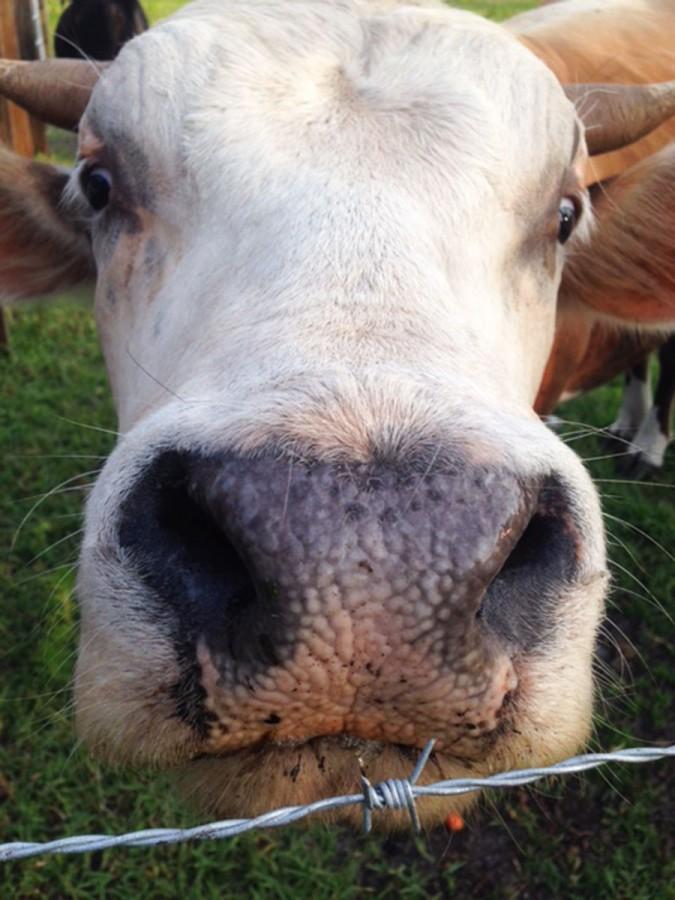ANIMALS SHOULD NOT SUFFER FOR HUMAN BENEFIT
Many animals are unjustly subjected to abuse for the benefits of humans.
April 15, 2016
Animals are often popular experimental subjects for new cosmetics, such as makeup supplies and vanity products. The practice of animal testing is completely unethical and inhumane, and is often ineffective. One solution to this problem is to consider safer methods for trialing their products.
Cosmetic companies test the safety of personal care items, like cologne, lipstick or mascara, by using the lives of harmless animals. The most common form of animal testing is acute toxicity testing. This cruel procedure involves forcibly feeding mice or rabbits and increasing amounts of a toxic substance until 50% of them die. Just the exposure to these lethal chemicals kills the animals in 14 days.
Additionally, to test for skin irritation, one to three rabbits are shaved per test, and the test substance is applied to their skin. These tests leaves their skin with extreme rashes and severe inflammation. The eye irritation test involves administering an unknown substance to the rabbits’ eyes, which can lead to blindness and painful ulcers in their eyes. This test supports the fact that animal testing is often conducted in an inhumane way because the rabbits’ eyelids are held back for at least 72 hours.
Former National Institutes of Health director Dr. Elias Zerhouni says, “The problem is that [animal testing] hasn’t worked, and it’s time we stopped dancing around the problem. We need to refocus and adapt new methodologies for use in humans to understand disease biology in humans.”
One main alternative method of animal testing is the use of human skin cells or tissues instead of animals as the test subjects. Due to the advancements in bioengineering and stem cells, scientists can grow new skin by using a volunteer’s stem cells. If a diversity of volunteers’ skin cells are used, animal testing won’t be needed, and the results of the tests will be applicable to humans.
Advocates of animal testing may argue that procedures aren’t safe for humans, but don’t address the fact that the process is also dangerous for animals. Although animal testing has contributed to the success of many cosmetics products, many results don’t foresee the human responses because of the fact that there are many differences between a small mammal and a human.
Likewise, “organ-on-chips” were created by Harvard’s Wyss Institute to offer a less expensive alternative to animal testing. Researchers are engineering microchips that mimic the functions of living organs, such as the lungs or heart. Also, these microchips are translucent, allowing scientists to clearly see the fundamentals of human organs. This advancement can substitute the uncivilized practice of animal testing.
As early as the 1920’s, small animals, such as rabbits and guinea pigs, have been mistreated and used for the barbarous practice of animal testing in cosmetics. As of now, the European Union, Israel and India have banned the sale of all cosmetics that had been tested on animals. Regrettably, the United States hasn’t placed any ban on animal testing and many cosmetics corporations choose to conduct tests on animals.
Sophomore Bre Hylton says, “I love to wear makeup, but I didn’t know that makeup was tested on animals in cruel ways. I’m going to try to find makeup that doesn’t use animals as test subjects because using makeup that had been tested on cute animals makes me feel guilty.”
Animal testing is a violent and unnecessary practice that should not be implemented in future cosmetic development. Human standards of beauty should not come before an innocent animal’s life.























